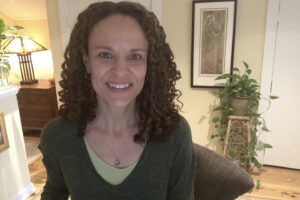March 24, 2025
Panel Session: Exploring ways to increase global participation in a diamond open access journal: the case of the Special Issue at JLSC
Day/time: Monday, May 5, 4:00 p.m. to 5 p.m. EDT
Presenters:
- Janet Catterall (she/they), Senior Project Officer, Open Access Australasia
- Shenmeng Xu (she/her) Librarian for Scholarly Communications Digital Lab, Vanderbilt University
- Andrea Quinn, Law Librarian for Digital Initiatives and Research Services, Emory University School of Law
- Frances Andreu (she/her), Scholarly Communications Librarian, Rochester Institute of Technology
- Janaynne Carvalho do Amaral (she/her), Postdoctoral Research Associate, University of Illinois at Urbana-Champaign
- Samir Hachani, Professor, School of Library Sciences-University of Algiers
- Eleanor Colla, University of Melbourne
Description: The Journal of Librarianship and Scholarly Communication (JLSC) is a diamond open access (OA) journal founded in 2012 and published by Iowa State University Press continuously in annual general issues. JLSC pursues a global authorship and readership.
JLSC is publishing a Special Issue (SI) Open Access: Diverse Experiences and Expectations. The impetus was twofold: to commemorate and evaluate 10 years of OA since JLSC’s original 2014 Bottlenecks in the Open-Access System: Voices from Around the Globe, and to respond to a 2023 internal report which identified that not only were the vast majority of JLSC’s submissions coming from the US, but also the rejection rate for submissions coming from non Northern/Western countries was proportionally much higher. Submissions from the Global South* were few and most were rejected and only 1% of JLSC’s peer reviewers came from these countries. Despite a stated interest in “diversity, equity, and inclusion in scholarly communication, including such areas as anti-racism, anti-oppression, and decolonization” (https://www.iastatedigitalpress.com/jlsc/site/about/), manuscripts from the US, Canada and Europe remain predominant, and work continues to determine why. This SI aims to advance themes of diversity and inclusion highlighted in the 2014 publication by expanding topics, authorship, editorship, and peer review – to present the “diverse experiences” of “voices from around the globe.” (JLSC, 2014.)
We propose a panel of members of the 2024 Special Issue Working Group- who represent four geographic areas and multiple educational and cultural backgrounds- to discuss our approach to the following issues in implementing the SI:
● Expanding the voices and themes represented in the original.
● Crafting an explicitly inclusive call for abstracts
● Designing a fair, representative selection process.
● Recruiting diverse perspectives and experiences among our guest editors.
● Increasing diversity of our reviewers to match the increased diversity of manuscripts
● Engaging audience experience in a concluding discussion of the limitations of our approach and ways to improve outcomes.
We hope this panel will generate conversation and provide insights to assist others in increasing diversity, equity and inclusion in their publishing initiatives.
* The authors recognise that the term “Global South” is problematic as it is not a geographical designation but one based on access to wealth and political power. The origin of the term lies in European and US institutions and structures, and it has been used to create a hierarchy among countries. In using the term, we reject negative connotations and are aware that many countries in the South are increasingly at par with rich Northern countries. We use the term here to denote those countries not traditionally included in the current model of scholarly publishing still dominated by Europe and the US.

